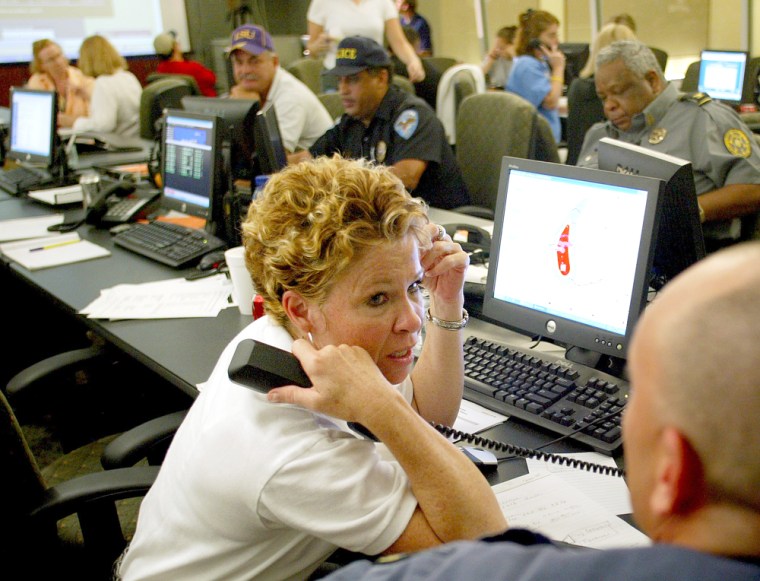Louisiana's capital city will not take Katrina's hardest hit, but in some ways, it is the storm's “ground zero.”
This is the state's command center, the office of emergency preparedness.
Outside, hundreds of cars are parked and double-parked. Everyone is here from Louisiana's Gov. Kathleen Babineaux Blanco to a second-year state trooper who was supposed to have the week off.
Add in a half-dozen satellite trucks, a crush of reporters and photographers, and, it's obvious, this is big.
In the center of the building is a large room with about one hundred people sitting at various desks. It reminds me of mission control at the Johnson Space Center.
Huge screens display the latest radar images. There's also a tally of power outages and rainfall amounts. Another screen shows how the various networks are covering the storm.
At each desk, a sign indicates what's being handled in that particular area: Civil Air Patrol, Louisiana State Police, Oil Spill Coordination, Department of Education, Department of Wildlife at Fisheries. There are several people in each area taking phone calls, checking computer screens, looking worried.
This is the nerve center for the Louisiana's response to Katrina.
It's from here emergency plans are being made, changed and will be put into play as the storm moves through. They're been preparing for this day for years, but hoped it would never come.
Gov. Blanco tried to calm fears of New Orleans residents seeking refuge in the superdome saying, "the superdome is not in any dangerous situation," for the time being.
It's tense here, and that feeling extends to the room housing reporters.
I'm sitting next to a journalist, Stephanie Riegel, from New Orleans. When she left the city to report from Baton Rouge, she brought her husband and three children with her. They're staying with her sister.
“I'm wondering where I'm going to put the kids in school if the schools are gone," said Riegel. "I guess we'll just get through today and then worry about tomorrow."
